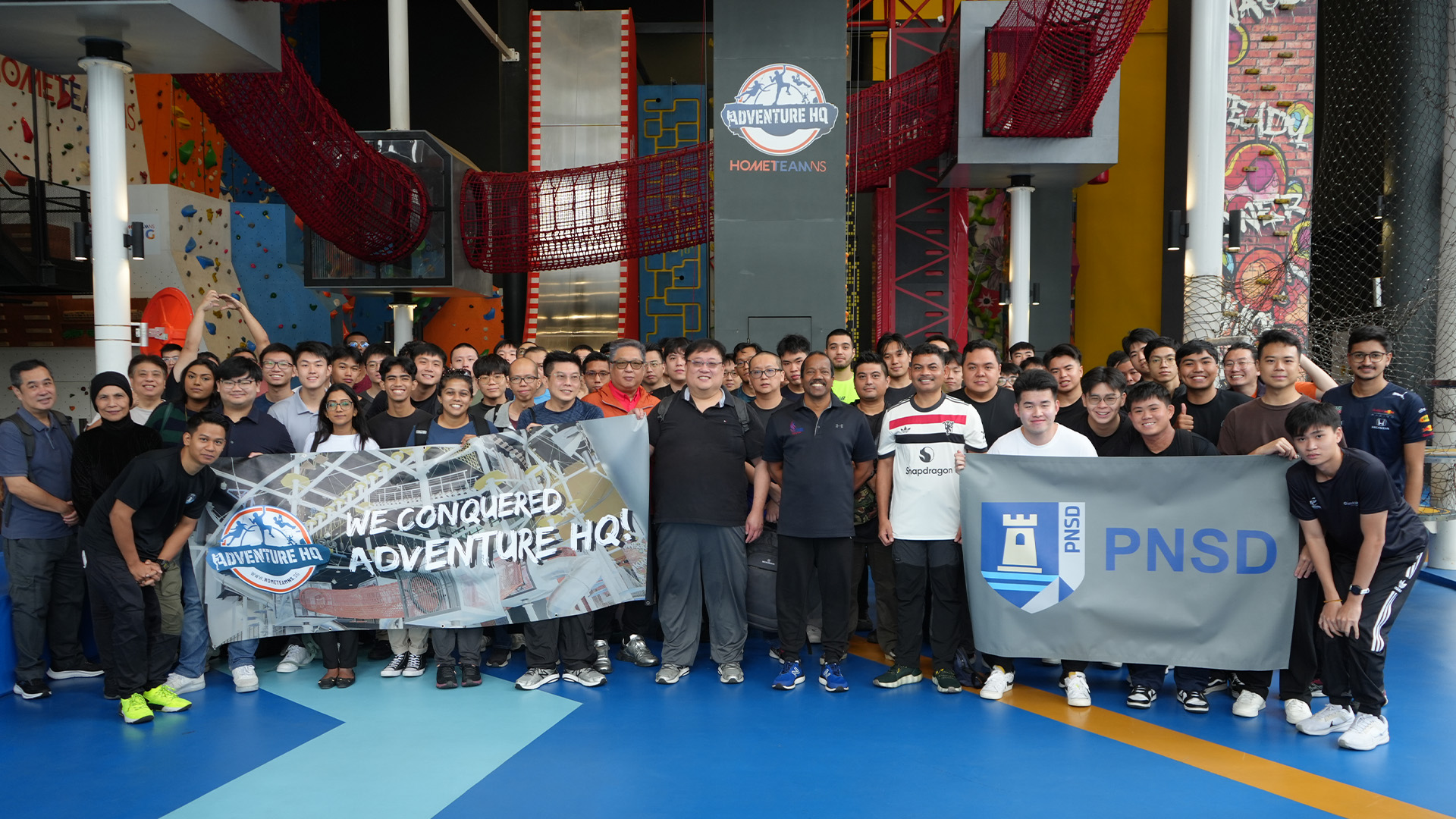Home › In The Force › Women on duty: Protecting lives with SCDF
Home › In The Force › Women on duty: Protecting lives with SCDF

From blazing fires to life-saving emergencies, the women of the Singapore Civil Defence Force are driven by compassion, courage and camaraderie. LTA Priscilla Chai Huan Ning (left) and SGT3 Nurhidayah Binte Rosli (right) share what it means to serve on the frontlines — and why their roles go far beyond the uniform.
Growing up, SGT3 Nurhidayah Binte Rosli saw strength and compassion in action through her mother, a nurse who juggled her professional and family responsibilities with tireless care. But it was a life-changing family emergency which Nurhidayah experienced in her early twenties that turned admiration into conviction.
Her late grandfather had collapsed while her parents were overseas. “I was lost and didn’t know what to do,” she recalls. That helpless moment became the catalyst for her decision to become a paramedic. “I vowed to myself that I never want to feel that sense of helplessness again.”
Now in her eighth year on the job, Nurhidayah believes that being a paramedic is more than a profession — it’s a calling. “It’s not just about wearing the uniform,” she says. “It’s about empathising with people during the most distressing moments of their lives.”
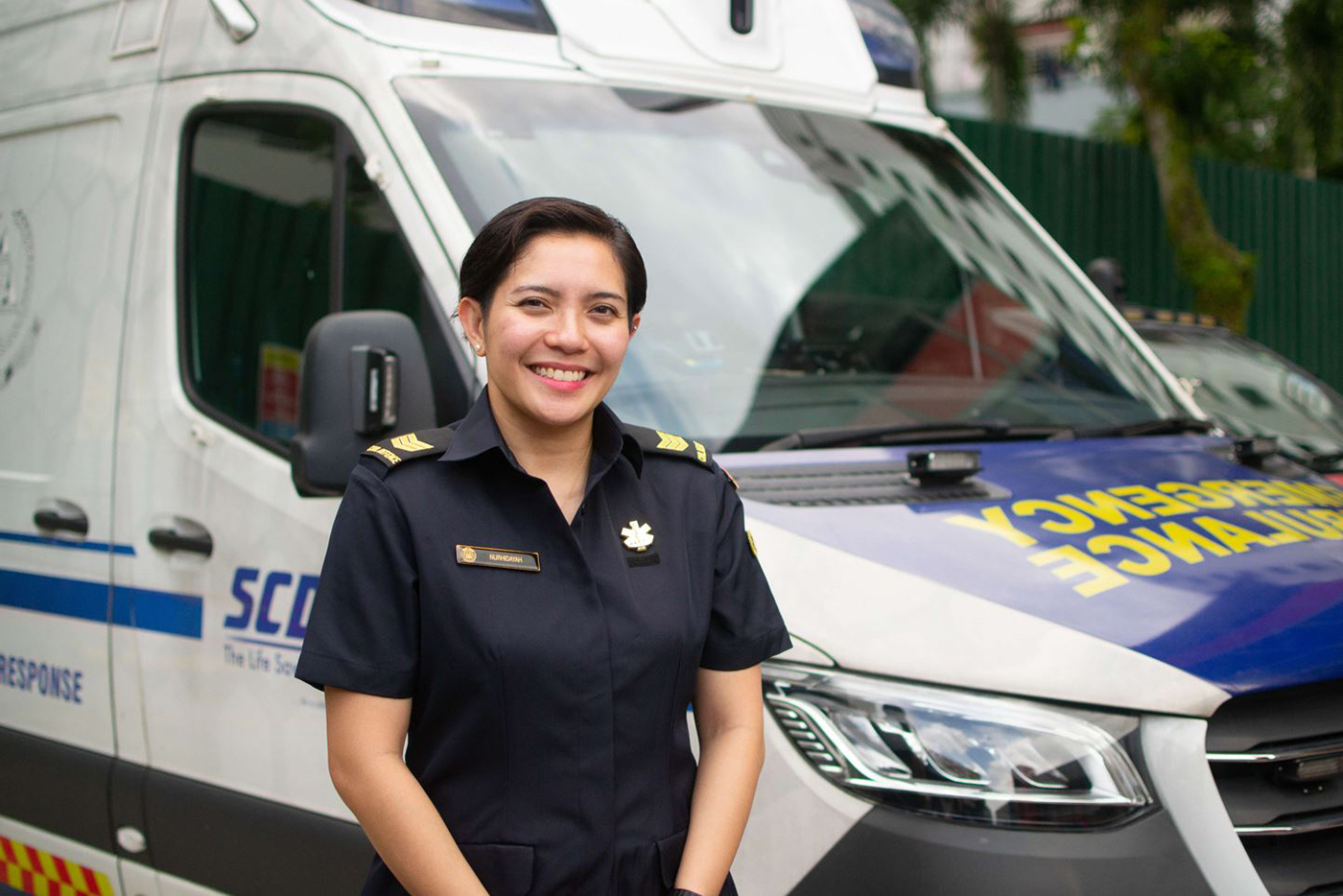
LTA Priscilla Chai Huan Ning, on the other hand, took an unconventional path into the SCDF, joining in her 30s after making a mid-career switch. Drawn by the stories and experiences shared by her friends in the Force, she felt inspired to take the leap and train as a Fire and Rescue Officer.
“Initially, I had concerns about whether I could complete the course,” she shares, noting that physical fitness was only part of the equation. “Beyond strength and conditioning, you need mental endurance to stay focused and ensure the safety of your team during incidents.”
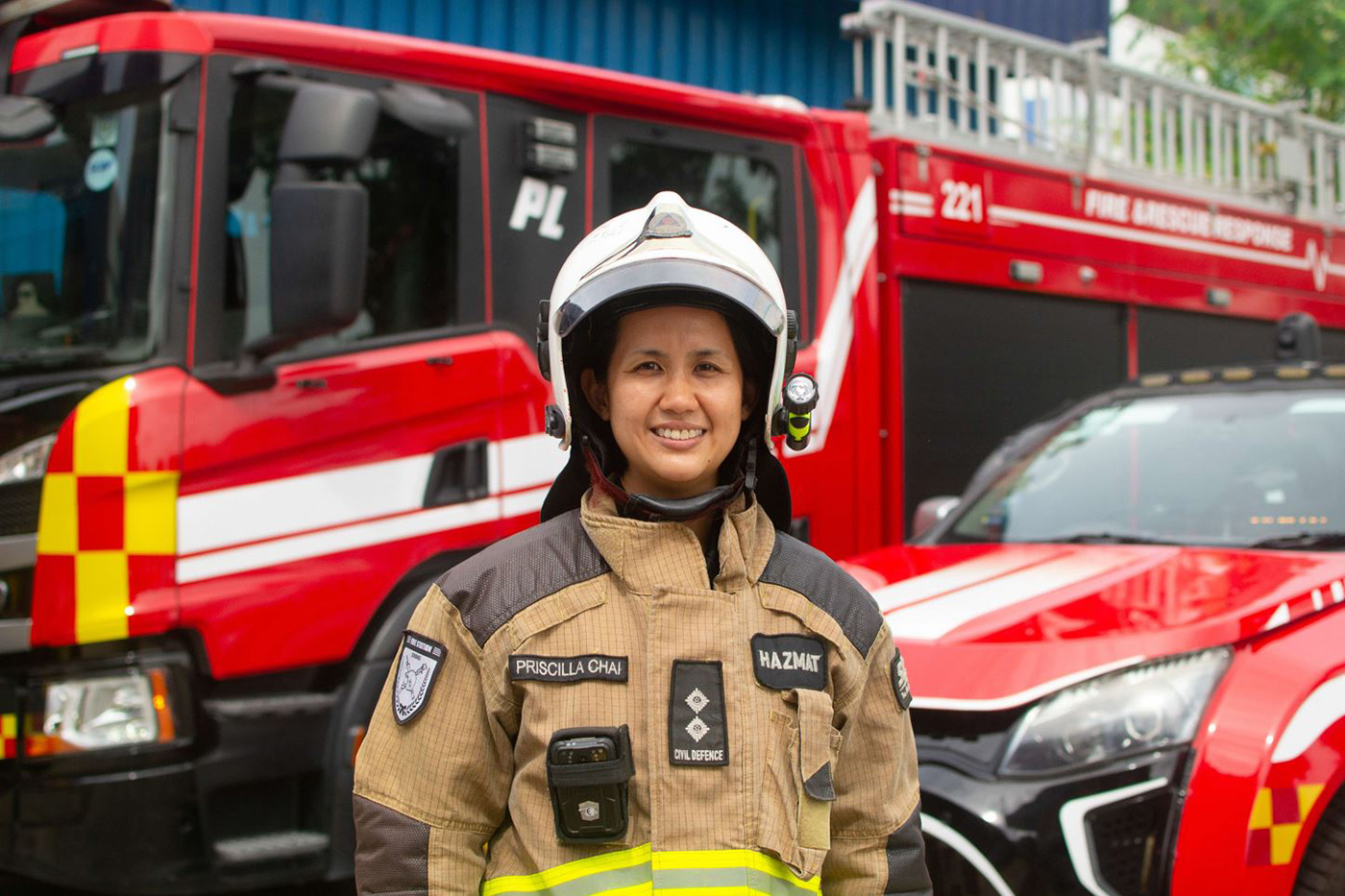
During the seven-month Rota Commander Course, what carried her through was the strong camaraderie among fellow trainees. As the bonds deepened, she gradually overcame her self-doubt. “As friends, we push each other to be better, and as a team, we can accomplish more together,” she said. After completing the course, Priscilla was posted to Changi Fire Station as a Rota Commander.
When asked about what they value most in their work, both Nurhidayah and Priscilla unanimously mentioned the camaraderie and trust among colleagues. “In this line of work, we know we have each other’s backs,” Nurhidayah shares. It’s a bond that doesn’t end with the shift, but continues as a source of support beyond the station.
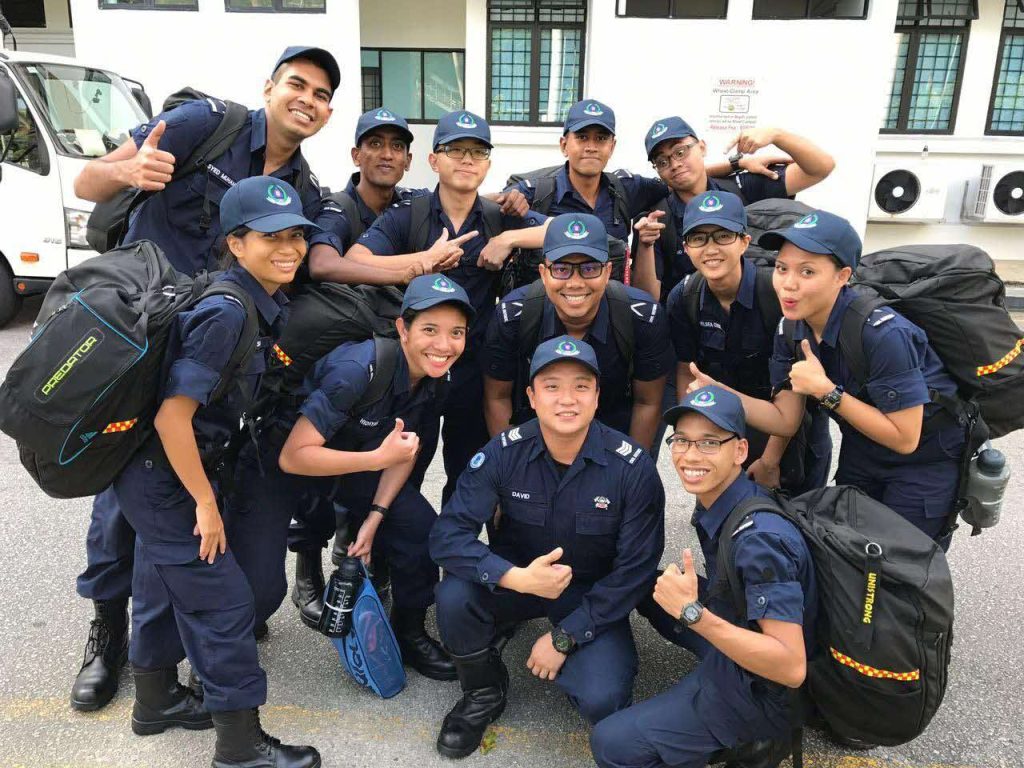
One incident brought that bond into sharp focus. After finishing a night shift, Nurhidayah was at her parents’ home when she smelled smoke. Following the trail, she discovered that a fire had broken out at her aunt’s unit, two floors below. Without missing a beat, she sprang into action, evacuating nearby residents. However, worry gripped her when she could not locate her four-year-old nephew.
That was when firefighters from Clementi Fire Station and Alexandra Fire Station — her own colleagues — arrived on the scene. When they emerged from the unit moments later, with her nephew safe and sound, she felt a wave of relief.
As a Rota Commander, Priscilla has seen how even small acts of compassion can make a big difference. She recalls a case where her team responded to a unit fire with a dog trapped inside. They mobilised quickly, conducted forcible entry into the flat to allow the dog to escape, shaken but unharmed.
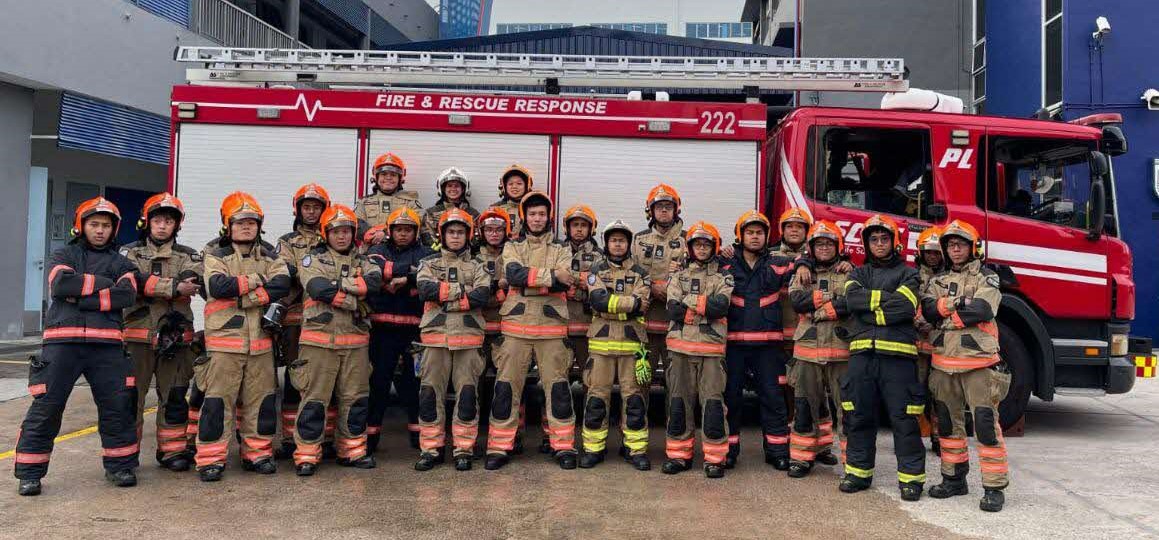
“We know that fires are immensely distressing for affected owners. A small act of empathy — like reuniting someone with their pet — can bring them some comfort in that moment,” she says. “Being a steady presence for people in those moments is what makes this job so meaningful.”
This sense of unity and support extends across roles — especially between firefighters and paramedics, who often respond to the same incidents. It’s a partnership built on trust and strengthened through regular joint training exercises.
“Firefighters are methodical in assessing situations, while paramedics focus on the patient’s medical needs,” Nurhidayah explains. “We complement each other and know exactly what each person needs to do. This coordination is crucial, especially in complex incidents.”
Reflecting on how her role has evolved, she says: “Our medical knowledge, skills and equipment are continually being enhanced. This enables us to manage a wider range of more complex emergencies.”
But just as important as professional growth is personal development. “Being on the frontline, we respond to different incidents every day, meeting people from all walks of life. These experiences have taught me how to make meaningful connections, offer a listening ear, and provide support and care to those around me,” she adds with a warm smile.
Being part of SCDF has only reinforced Priscilla’s respect for the work and those who do it. “There’s a saying: ‘Nobody fights a fire alone’. Every team member contributes something valuable, be it their wealth of experience, decision-making skills or specialised knowledge.”
Through her time in the field, she has come to see humility as a strength. “Always be open to learning from your colleagues, and don’t be afraid to ask questions,” she says — an approach that has helped her grow both personally and professionally.
In embracing that mindset, she has also learnt to trust in her own abilities. “Don’t doubt your abilities or limit yourself on what you can achieve. Women can excel in this field, too.”
*This story has been adapted from an article that was originally published in SCDF’s digital magazine, Rescue995.
Like our stories? Subscribe to our Frontline Digital newsletters now! Simply download the HomeTeamNS Mobile App and update your communication preference to ‘Receive Digital Frontline Magazine’, through the App Settings.



